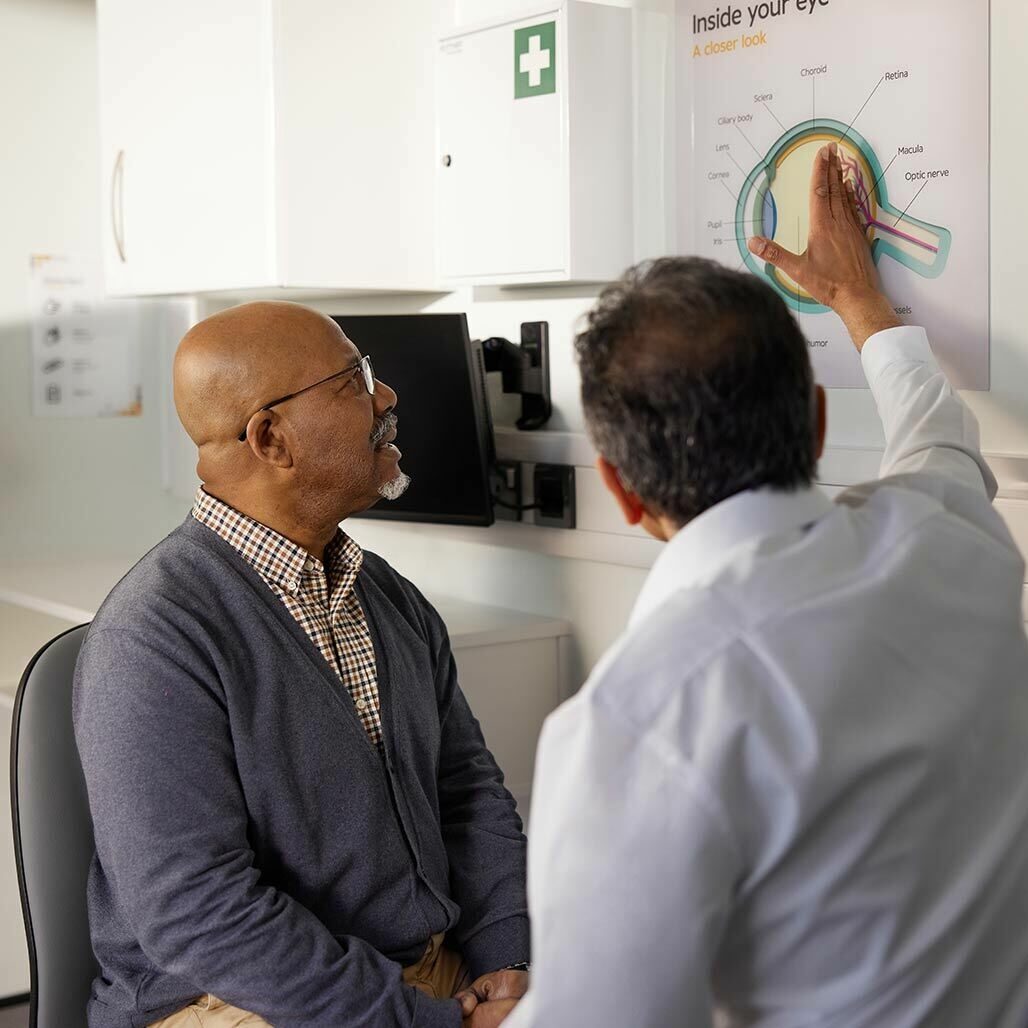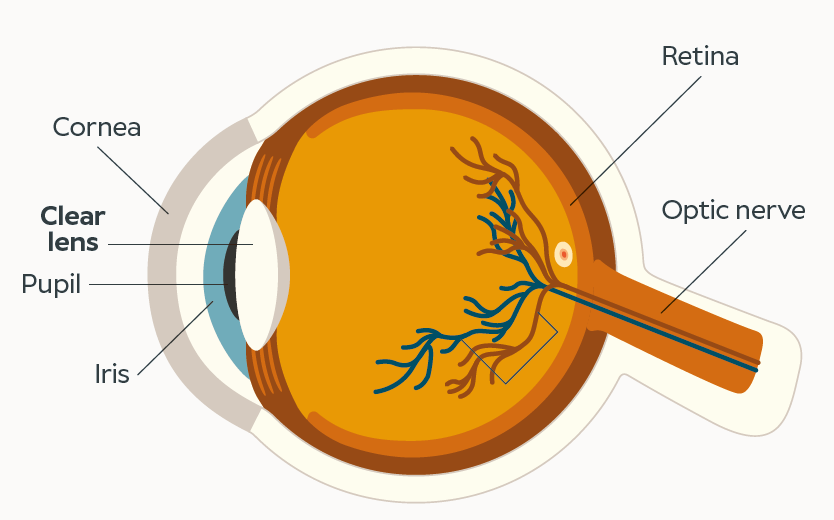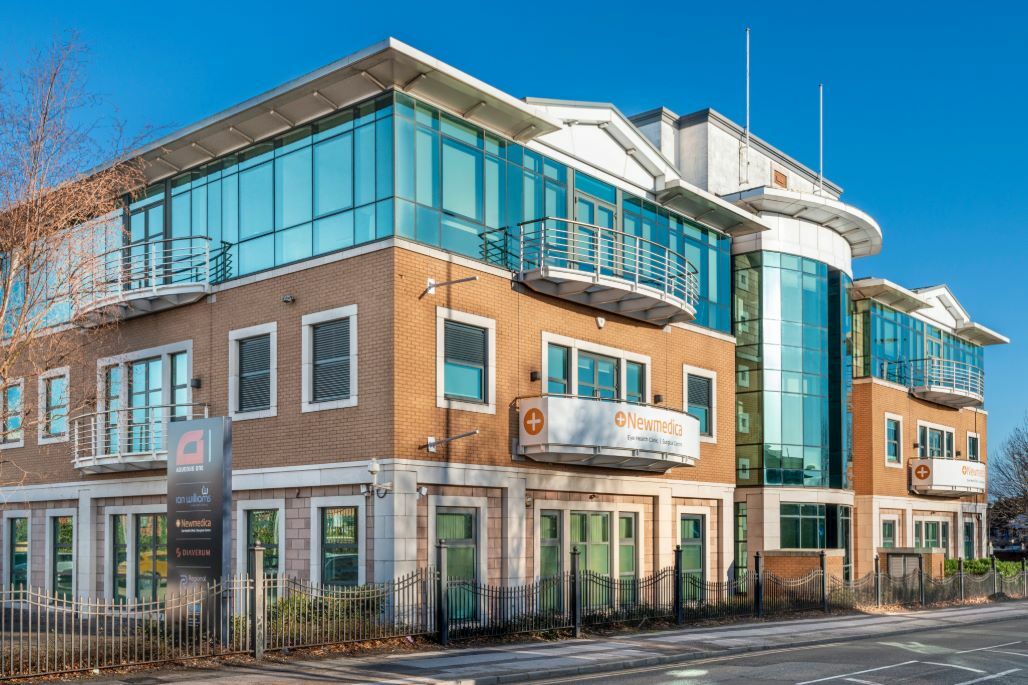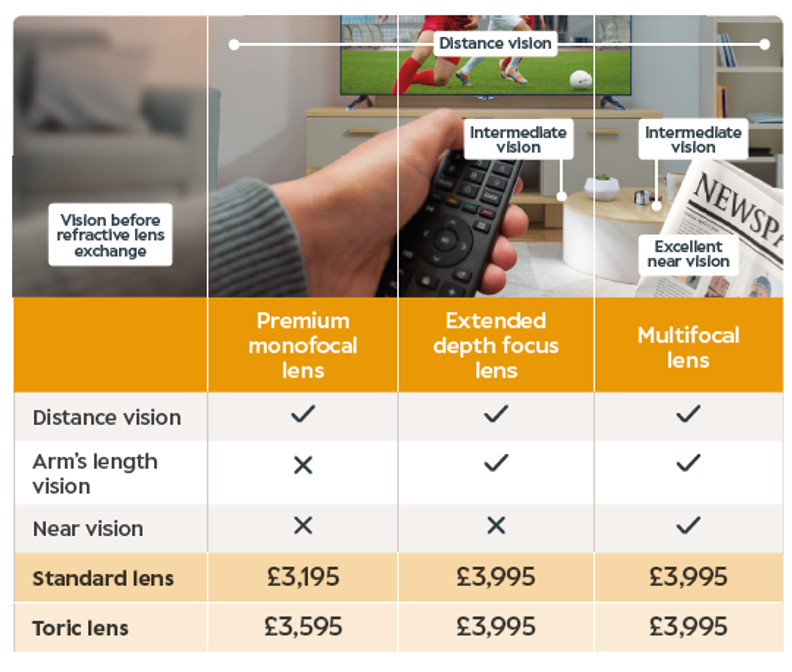
What is refractive lens exchange surgery?
Refractive lens exchange is an established procedure that replaces the eye’s natural lens with a synthetic lens to correct vision errors that can’t be tackled with laser eye surgery.
Conditions suitable for refractive lens exchange include:
• Presbyopia (a common age-related condition that makes it harder to see things up close)
• Astigmatism (when the eye is shaped like a rugby ball, leading to blurred vision)
• Severe short-sightedness (high myopia)
• Severe long-sightedness (hyperopia).

Where can I get refractive lens surgery?

Newmedica Birmingham
0121 270 5048

Newmedica Worcester
01905 671 637
How does refractive lens exchange work?
The procedure is quite straightforward. The surgeon makes a tiny incision in your eye, removes the natural lens, and replaces it with an artificial one. The whole thing usually takes about 15 minutes per eye, and it's done under local anaesthesia, so you won't feel a thing.
What to expect from refractive lens exchange surgery?
After the surgery, you might experience some mild discomfort and blurry vision for a few days, but most people are back to their normal activities within a week. Your vision will gradually improve as your eye heals, and you'll have a follow-up appointment to make sure everything's on track.
Your tailored lens options
Your surgeon will remove your natural lens and replace it with a clear high-quality one. We offer a range of replacement lenses to meet your lifestyle and preference.
We’ll talk you through all the options, but here’s a quick guide to our range of lenses available to private patients:
Monofocal lens
This lens has a single focus point, so your vision will be corrected for distance or near, but not both.
Extended depth of focus lens
This lens improves vision from arm’s length to distance. The need for glasses is likely to be reduced, but you may still need them for very close-up work like reading small print or sewing.
Multifocal lens
This lens provides more than one point of focus, which means clearer vision close up, at arm’s length and for distance. A multifocal lens helps to significantly reduce the need for glasses.
Toric lenses
Monofocal, extended depth of focus and multifocal lenses all come in ‘toric’ versions which help to correct blurred vision caused by an irregularly shaped eye, known as astigmatism.

£195 non-refundable initial consultation fee payable when you attend for your first appointment. If you go ahead with treatment, we’ll credit the full amount towards your final bill. The remaining balance is then due in advance of your procedure.
Who is suitable for refractive lens exchange surgery?
Refractive lens exchange is typically recommended for patients who wish to correct a refractive error which, in turn, will reduce their dependence on glasses or contact lenses and who are not suitable candidates for refractive laser procedures such as LASIK or PRK (procedures that reshape the clear window at the front of the eye, the cornea, to correct vision problems such as near-sightedness, far-sightedness and astigmatism).
It may also be advised for patients with early signs of lens dysfunction (loss of near vision or contrast sensitivity, for example) who are seeking a long-term solution for vision correction.
This procedure is often considered for individuals over the age of 50, particularly those with presbyopia (loss of nearby focusing power with age) or those experiencing difficulty with both near and distance vision.
Your refractive lens exchange journey at Newmedica
-
Referral
Contact us to book a consultation. We’ll be in touch within 24 hours to guide you through the next steps and arrange your consultation – usually within 10 days. The consultation costs £195, non-refundable. If you go ahead with treatment, we’ll credit the full amount towards your final bill.
-
Consultation
You’ll be greeted by our patient co-ordinator, who’ll introduce you to your consultant. After eye tests and measurements, we’ll explain your lens options and help you choose a lens that best suits your needs. Surgery is then scheduled – often within a few weeks, or at a time that’s most convenient for you.
-
Surgery
Our theatre team will ensure you’re comfortable throughout. We’ll apply drops to dilate and numb your eye, before you meet your consultant to discuss any final questions. The surgery is complete in around 15 minutes. Afterward, you’ll receive eye drops and aftercare advice, then relax until you’re ready to go home.
-
Aftercare
We’ll call you the next day to check in. You’ll also have access to an emergency helpline for any urgent concerns. A follow-up will take place a few weeks later, either at our clinic or with your optometrist. We’ll confirm this at your consultation.
How is refractive lens exchange surgery different from cataract surgery?
RLE and cataract surgery are quite similar, but there's a key difference. Cataract surgery is done to remove a cloudy lens (a cataract), while RLE is done to correct vision issues. In both cases, the natural lens is replaced with an artificial one, but the reasons for the surgeries are different.
